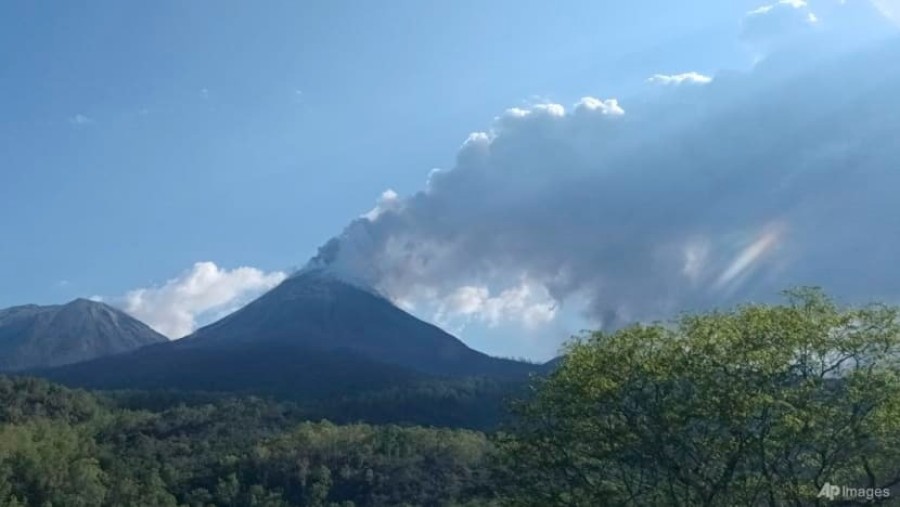Flights to Bali resume following volcanic eruption

Several airlines resumed flights to Bali on Thursday (Nov 14), after cancelling trips to and from the Indonesian resort island due to huge eruptions at a nearby volcano.
Eighty-three international routes were cancelled on Wednesday, the general manager of Bali's international airport said in a statement, after Mount Lewotobi Laki-Laki spewed a 9km tower of ash into the sky.
The volcano has erupted more than a dozen times over the last two weeks, killing at least nine people and forcing the evacuation of thousands. Singapore Airlines (SIA) and budget carrier
Scoot confirmed to CNA that it had retimed two flights to and from Bali and Surabaya.
Qantas and Jetstar were resuming their services to Bali, Australia's Qantas Group said in a statement Thursday, noting "improved" conditions.
Two delayed Qantas flights from Wednesday were among those set to take off, Qantas said.
"We will continue to monitor the changing conditions and volcanic activity," it said in the statement.
AirAsia planned to resume some flights to and from Bali later today, the company said in a statement to AFP, while Virgin Australia said on its website it would resume flights to and from Denpasar starting today.
As of early Thursday morning, Bali's airport had recorded another 32 international flight cancellations, general manager Ahmad Syaugi Shahab said.
He added that volcanic ash from Mount Lewotobi Laki-Laki has been heading away from the airport since Wednesday evening.
"We hope affected airline passengers can resume their travel on Thursday," Ahmad said.
Lewotobi erupted again overnight into Thursday morning, and a thick ash column and lava flows could be seen pouring from its crater, according to the volcanology agency.
The airport in the tourist hotspot of Labuan Bajo near the volcano reopened on Thursday, according to the airport's Instagram.
Laki-Laki, which means "man" in Indonesian, is twinned with a calmer volcano named after the Indonesian word for "woman".
Bali's economy is heavily reliant on tourism but Indonesia is one of the most disaster-prone nations on Earth, straddling the Pacific Ring of Fire where tectonic plates collide.
